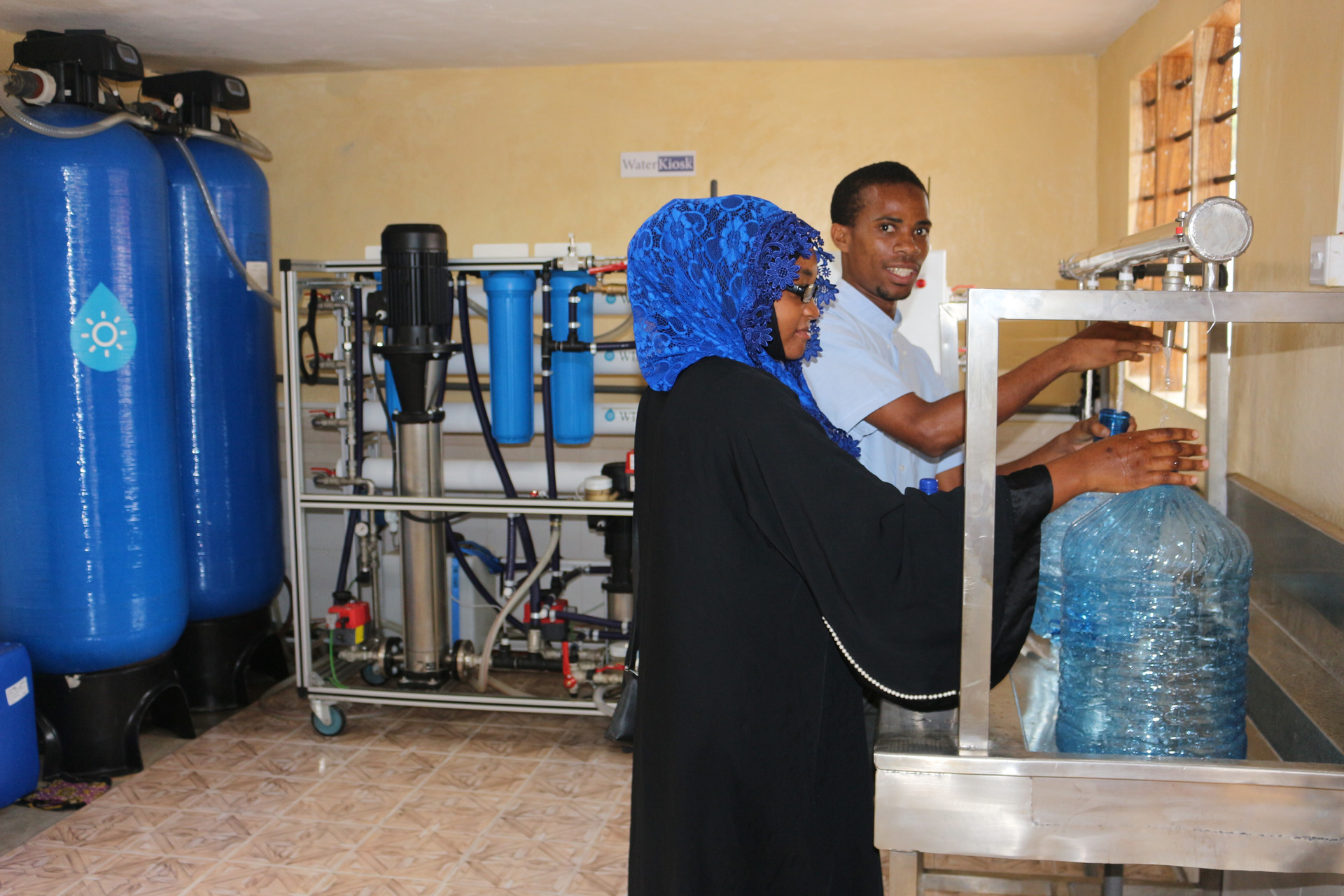
Specialty chemicals company Lanxess is supplying its reverse osmosis membrane elements for use in a solar-powered desalination system called WaterKiosk which provides clean water to the population of the Kenyan village of Burani.
The Burani WaterKiosk is part of a desalination system from German company, Boreal Light, which specialises in simple, affordable battery-free water treatment solutions powered directly by a 10 kW solar panel with no requirement for a diesel generator or connection to the grid. The kiosk was built in partnership with an independent German non-profit organisation, atmosfair.
Eight Lewabrane membrane elements with a total membrane surface area of more than 50 m2 are being used in the project. Raw water with a high salt content of 4,800 ppm, which comes from a 120 m deep borehole, is treated to become drinking water using solar-powered reverse osmosis. Raw water is pushed through the semipermeable membrane walls, and substances and impurities that are dissolved in the water are almost entirely removed.
The desalination system supplies up to 20,000 litres of drinking water every day to the village and its neighbouring community.


